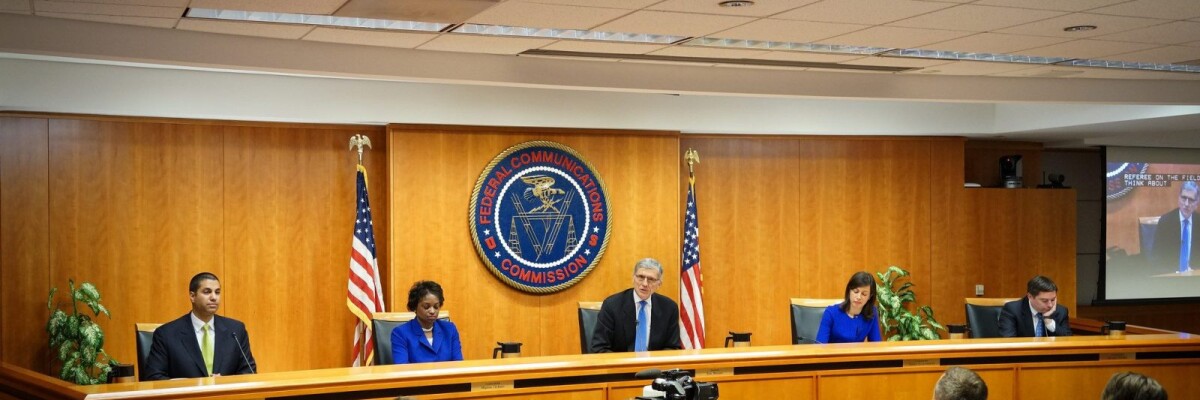The Federal Communications Commission (FCC) abolished the principle of network neutrality which was adopted in February of 2015. At the FCC meeting on December 14, three out of the five members of the...
The Federal Communications Commission (FCC) abolished the principle of network neutrality which was adopted in February of 2015. At the FCC meeting on December 14, three out of the five members of the commission voted for it and two against it.
The rule of neutrality forbade blocking and regulating content at the providers level. Telecommunication companies would not have been able to limit the speed of one resource and provide a wider band for others. This principle excludes the promotion of certain content in commercial and other interests by the same content providers.
The public discussion about the cancellation of network neutrality has continued since May, when the idea was put up for public discussion. Users on the FCC website left more than 20 million comments. At the same time, strange things started to happen to some of the records. About 50,000 complaints were lost from the site and several hundred thousand identical entries in support of the new rules were written on behalf of users without their knowledge or from deceased people.
Attorney General of the State of New York, Eric Schneiderman, said in November that he is investigating the tampering of comments. The FCC has data that could help in the investigation but the agency refused to provide them.
In the summer, the first rallies against the initiative were held. A petition calling for the preservation of network neutrality was signed by more than 2 million people and more than one million calls were made to the U.S. Congress. Large IT companies and services such as Amazon, Facebook, Google, Mozilla, Twitter, Reddit, Kickstarter, Vimeo, and even Netflix were against the cancellation of network neutrality, along with ordinary American users as well 20 famous scientists and engineers, including Vint Cerf, Stephen Wozniak, Ronald Rivest, and Tim Berners-Lee, the creator of the World Wide Web, signed an open letter to the FCC accusing the authors of the project of simply not understanding how the Internet works.
Some organizations which protect the free market and of course large telecommunications companies support the FCC's decision.
It is interesting to note that the chairman of the FCC, Ajit Pai, who proposed to abolish network neutrality, calls this step "the restoration of freedom on the Internet." According to Pai, this will simplify the rules of the providers and make the Internet more accessible. The FCC chairman believes that both customers and companies will benefit from the return to the free market approach in which more opportunities will be given to Internet resources that can pay for it.
Opponents of the abolition of neutrality continue their campaign against the decision of the FCC and urge the U.S. Congress to block the project. If however the document still passes in Congress, there will be the possibility of revoking the decision of the FCC through the courts. The human rights organization, the Electronic Frontiers Foundation (EFF), have supported the protests from the very beginning and believe that the abolition of network neutrality is contrary to antimonopoly legislation.
Share this with your friends!






Be the first to comment
Please log in to comment